
Ensuring a balanced diet for your scaly companion is crucial for their overall health and well-being. Reptiles, such as snakes and lizards, require a combination of protein, fruits, vegetables, and calcium-rich foods to thrive. Consult with a reptile specialist to create a diet plan tailored to your pet’s specific species and needs, and always provide fresh, clean water to keep them hydrated.
Reptiles, fascinating pets with diverse dietary needs, depend on precise nutrition for their well-being, just like us. In this guide, we’ll uncover the importance of a balanced diet in reptile health and longevity, whether you’re an experienced reptile owner or new to the world of scaled pets.
Understanding Your Reptile’s Dietary Needs
Understanding your reptile’s dietary needs is the first step in providing them with optimal nutrition. Unlike mammals, reptiles are ectothermic, which means their metabolic rate is directly influenced by external temperatures. This unique feature has a significant impact on their dietary requirements. Various reptile species exhibit distinct preferences and nutritional needs.
Some, like herbivorous tortoises, thrive on plant-based diets rich in fiber, while others, such as carnivorous snakes, require a diet primarily composed of protein. Researching your specific pet’s species is essential, as it unveils the intricacies of their dietary preferences. Factors like their natural habitat, activity level, and age all play a role in determining the ideal diet.
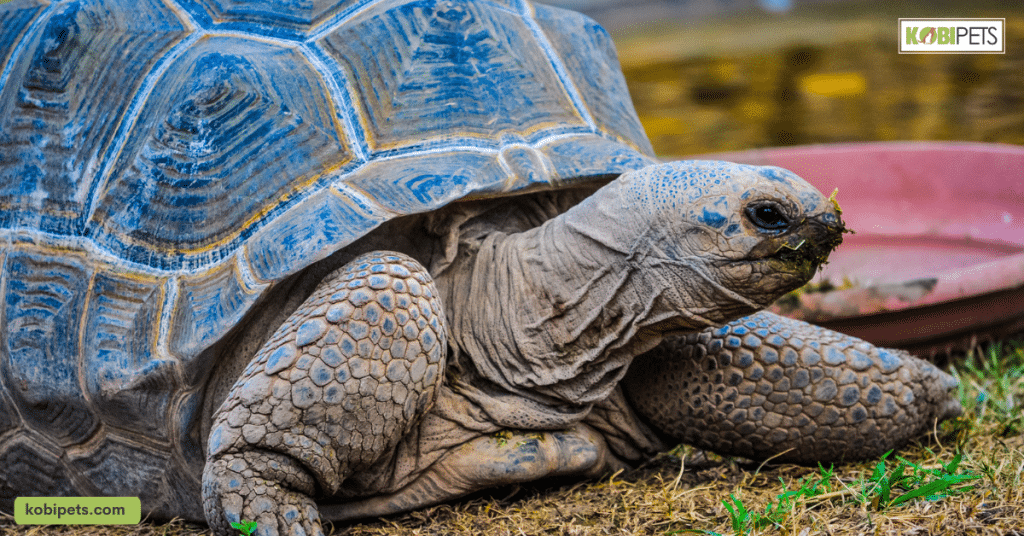
Protein Sources for Reptiles
Protein is a fundamental component of any reptile’s diet, and understanding the best sources and feeding practices is vital for their well-being. In this section, we’ll explore the diverse protein sources suitable for reptiles, ranging from insects to rodents and fish. We’ll delve into portion sizes, feeding schedules, and the often-overlooked practice of gut-loading prey for optimal nutrition.
- Insects: Insects are a versatile and popular protein source for reptiles. Crickets, mealworms, dubia roaches, and black soldier fly larvae are among the many options available. They are particularly well-suited for small to medium-sized reptiles due to their size and nutritional content.
- Rodents: Appropriately sized rodents are a primary protein source for larger reptiles, such as snakes and monitors. Mice and rats are commonly used, with the size of the prey matching the reptile’s ability to consume it safely.
- Fish: Some reptiles, like aquatic turtles, benefit from fish in their diet due to their high protein content. Fish can be an excellent source of protein for these reptiles, contributing to their overall health.
- Portion Sizes: Determining the right portion size is crucial. Offer prey items that are appropriately sized for your reptile, ensuring they can consume them without struggling or risk of injury.
- Feeding Schedules: Establishing a consistent feeding schedule is essential for your reptile’s health. The frequency of feeding varies depending on the species and age of your reptile. Research your specific reptile’s needs to provide them with the right feeding schedule.
- Gut-Loading: Prior to feeding, it’s essential to “gut-load” prey insects. This involves nourishing the insects with high-quality, nutritious foods to enhance their overall nutritional value when consumed by your reptile.
Providing the right protein sources in the correct quantities and frequency is crucial for your reptile’s health. By following these guidelines, you’ll ensure that your scaly friend receives the essential protein they need to thrive.
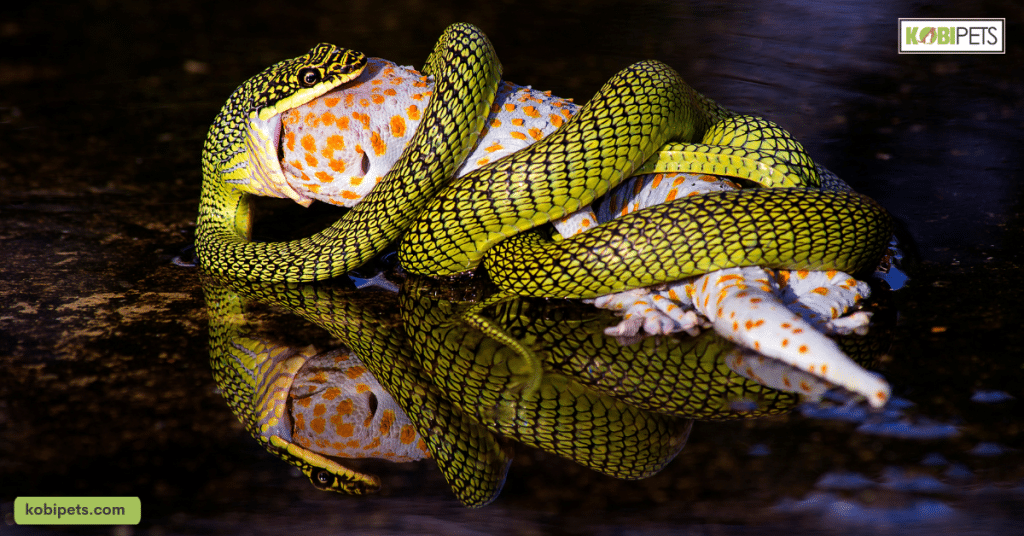
Incorporating Fruits and Vegetables
Incorporating fruits and vegetables into your reptile’s diet is a crucial aspect of providing a well-rounded and balanced nutritional plan. These plant-based foods play a pivotal role in enhancing your reptile’s overall health. Not only do they offer essential vitamins and fiber, but they also provide variety and enrichment to their diet.
Some reptile-safe options include leafy greens like collard greens and kale, as well as fruits like berries and papaya. When preparing these foods for your scaly companion, it’s essential to wash them thoroughly and cut them into appropriate sizes, taking care to remove any seeds or pits that may be harmful.
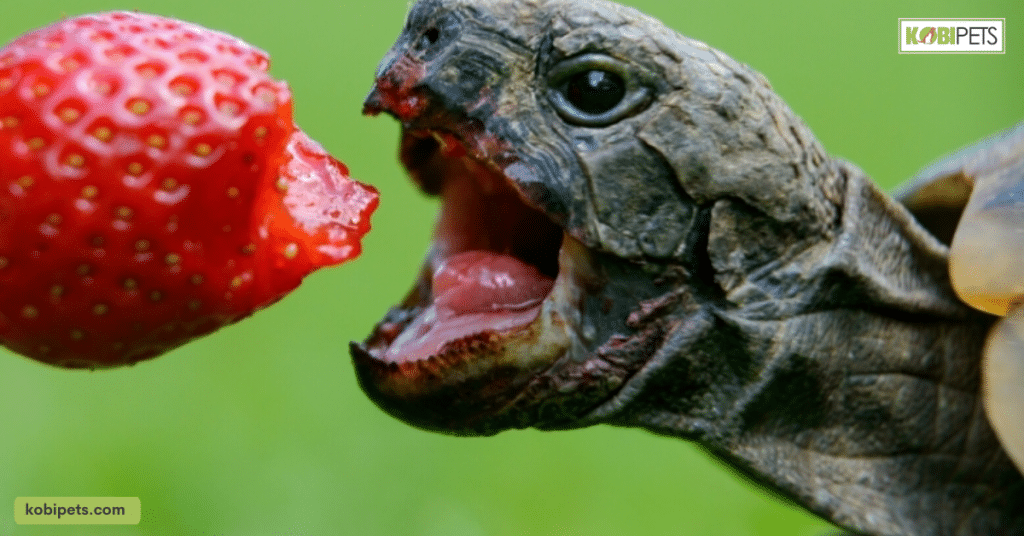
Calcium and Other Essential Nutrients
Calcium is a cornerstone of reptile nutrition, indispensable for bone health and overall well-being. Insufficient calcium can lead to debilitating conditions like metabolic bone disease. To prevent this, it’s crucial to provide your reptile with ample sources of calcium. These sources can include calcium supplements, which may be necessary for some species, as well as dusting prey items with calcium powder before feeding.
Additionally, a well-balanced diet should encompass a range of other essential nutrients, including vitamins and minerals, which contribute to your reptile’s overall health. Vitamin D, for instance, aids in calcium absorption, while other vitamins and minerals play diverse roles in their metabolic processes.
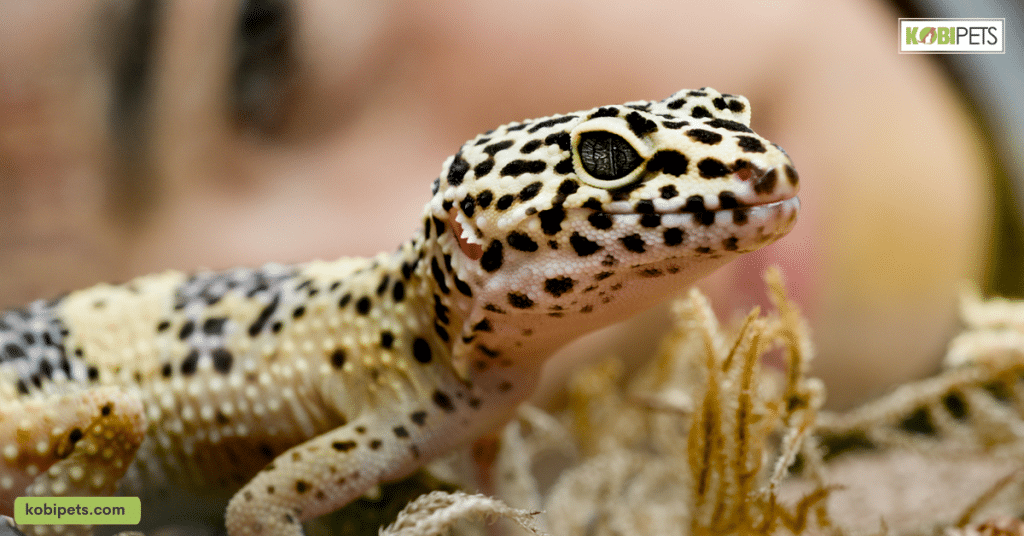
Tailoring the Diet to Your Reptile’s Species
Tailoring your reptile’s diet to their species-specific needs is paramount for their health and happiness. Reptiles span a wide range of dietary preferences, making it essential to understand their individual requirements.
Understanding Species-Specific Dietary Needs
Reptiles encompass a wide array of species, each with its distinct dietary preferences and requirements. Consider the herbivorous iguana, which thrives on a diet rich in leafy greens and fruits, in stark contrast to the carnivorous ball python, which relies solely on a diet of rodents.
Some species, like bearded dragons, fall into the omnivorous category, necessitating a blend of plant-based and animal-based foods. Understanding the specific dietary needs of your reptile’s species is the key to ensuring their health and happiness.
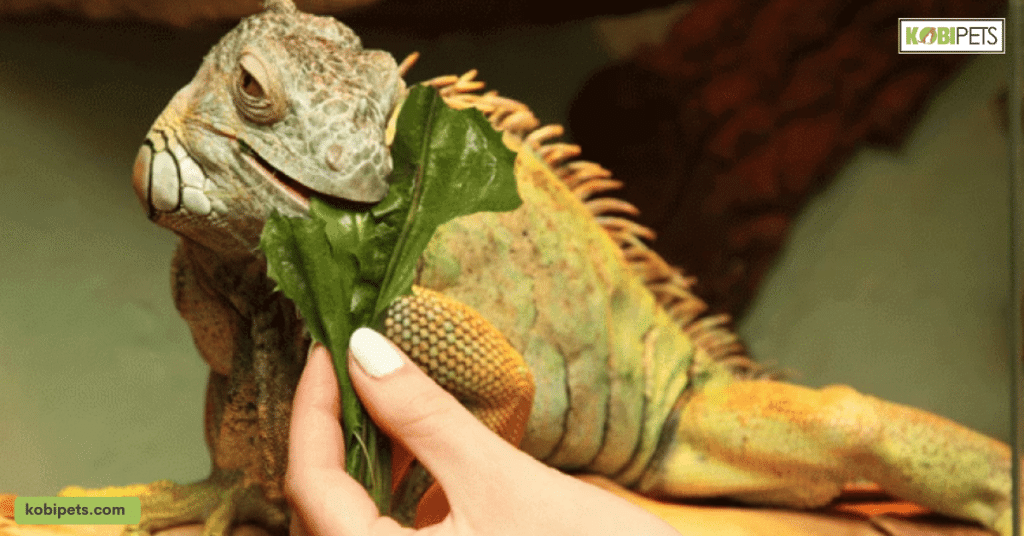
The Expert’s Touch
Consulting with a reptile specialist or veterinarian is a crucial step in tailoring the perfect diet for your reptile. These experts possess an in-depth understanding of reptile physiology, behavior, and nutritional requirements. They can assess your pet’s species, age, and overall health to create a dietary plan that meets their unique needs.
Whether it’s determining the right balance of protein and plant matter or addressing any specific health concerns, their expertise ensures your scaly companion receives the best care possible.
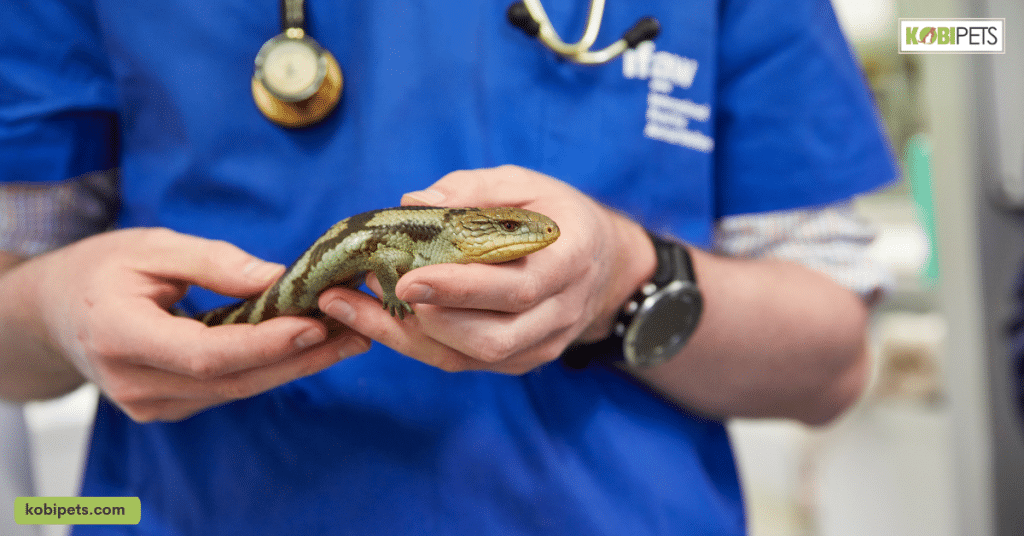
Tailoring a Balanced Diet
Creating a balanced diet tailored to your reptile’s species requires a meticulous approach. It involves not only understanding their primary dietary category (herbivore, carnivore, or omnivore) but also considering their specific nutritional needs within that category. For example, an herbivorous tortoise may need a variety of leafy greens, while an herbivorous iguana may require a blend of fruits and vegetables. Carnivorous reptiles might need whole prey items or specific cuts of meat.
By seeking expert guidance and continually adapting their diet as they grow and evolve, you’ll be ensuring their health, happiness, and longevity. In the next section, we’ll explore the importance of maintaining proper hydration and establishing a feeding schedule that caters to your reptile’s individual needs.
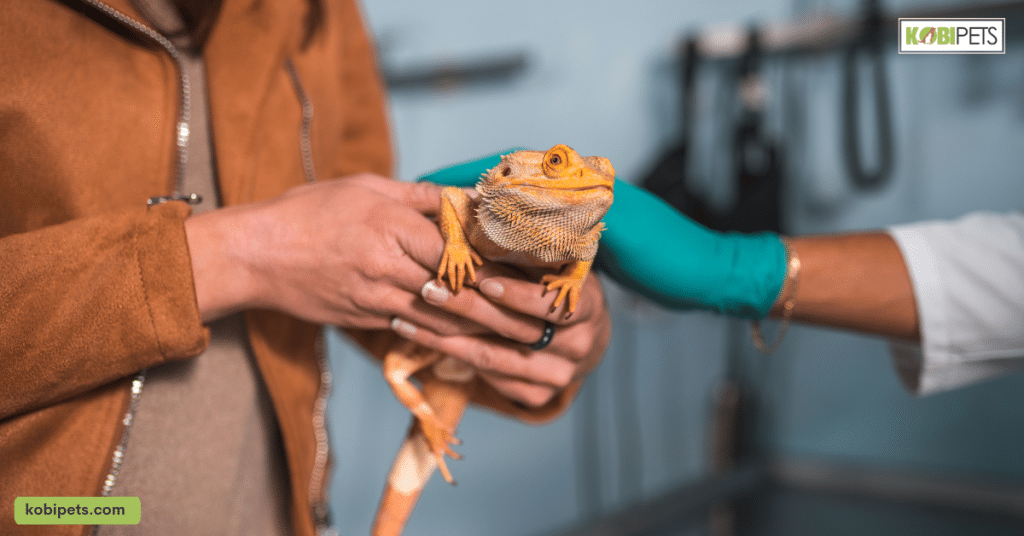
Maintaining Hydration and Feeding Schedule
Proper hydration and a well-structured feeding schedule are crucial elements in ensuring the well-being of your reptilian companion. In this section, we’ll delve into the significance of maintaining your reptile’s hydration levels and how to provide it with clean, fresh water.
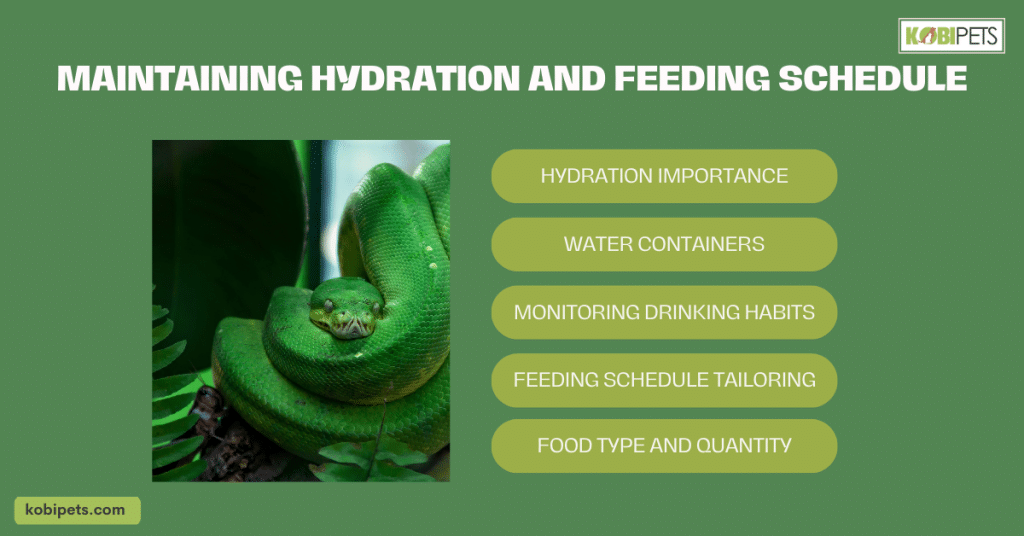
Maintaining Hydration and Feeding Schedule
- Hydration Importance: Reptiles rely on external sources of heat to regulate their metabolism, which makes hydration essential for their overall health. Dehydration can lead to serious health issues, so providing access to clean, fresh water is paramount.
- Water Containers: Choose water containers that are easily accessible to your reptile but also designed to prevent contamination. Shallow dishes work well for many species, while others may require more elaborate setups.
- Monitoring Drinking Habits: Pay close attention to your reptile’s drinking habits. Some species are more discreet drinkers, making it essential to observe their water levels regularly. If your reptile is reluctant to drink, consider using a spray bottle to mist their enclosure, which can encourage them to drink droplets.
- Feeding Schedule Tailoring: Establishing a feeding schedule that aligns with your reptile’s needs is equally crucial. The frequency of feeding varies by species and age. For example, hatchling reptiles may require daily feedings, while adult counterparts might thrive on less frequent meals.
- Food Type and Quantity: Determine the appropriate food type and quantity based on your reptile’s species, size, and age. Carnivores need protein-rich diets, while herbivores require plant-based nutrition. Avoid overfeeding, as it can lead to obesity and health issues.
Maintaining proper hydration and a well-structured feeding schedule are integral aspects of responsible reptile care. By providing clean water and tailoring your reptile’s feeding regimen to their specific needs, you ensure their health and vitality.
In Conclusion
Ensuring a balanced diet, maintaining proper hydration, and establishing a suitable feeding schedule are the cornerstones of responsible reptile care. Recognizing the dietary needs of your reptile’s species and consulting with experts when needed guarantees their health and longevity. By following these guidelines, you’ll not only provide your scaly companion with the optimal nutrition they require but also foster a fulfilling and enriching life in captivity.






